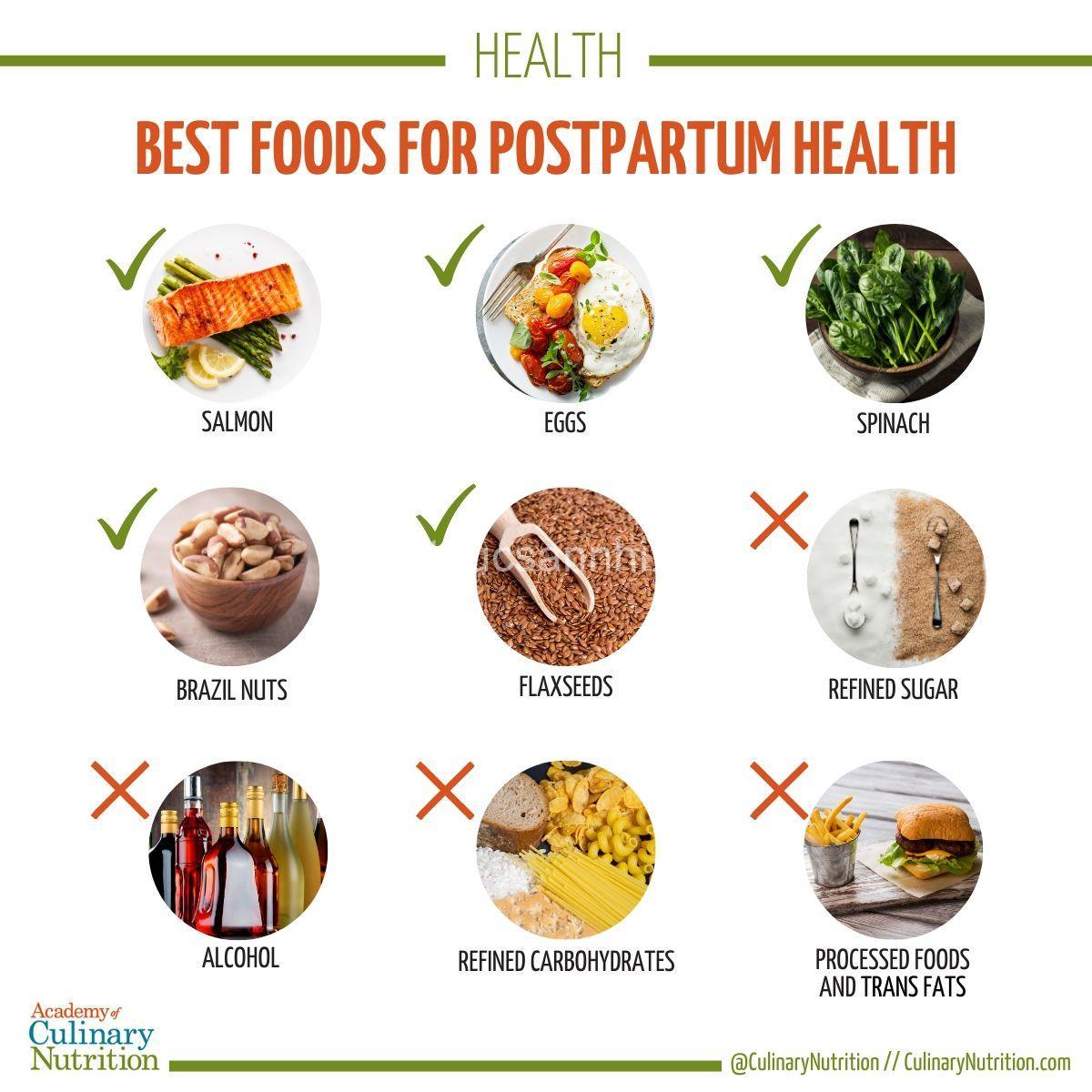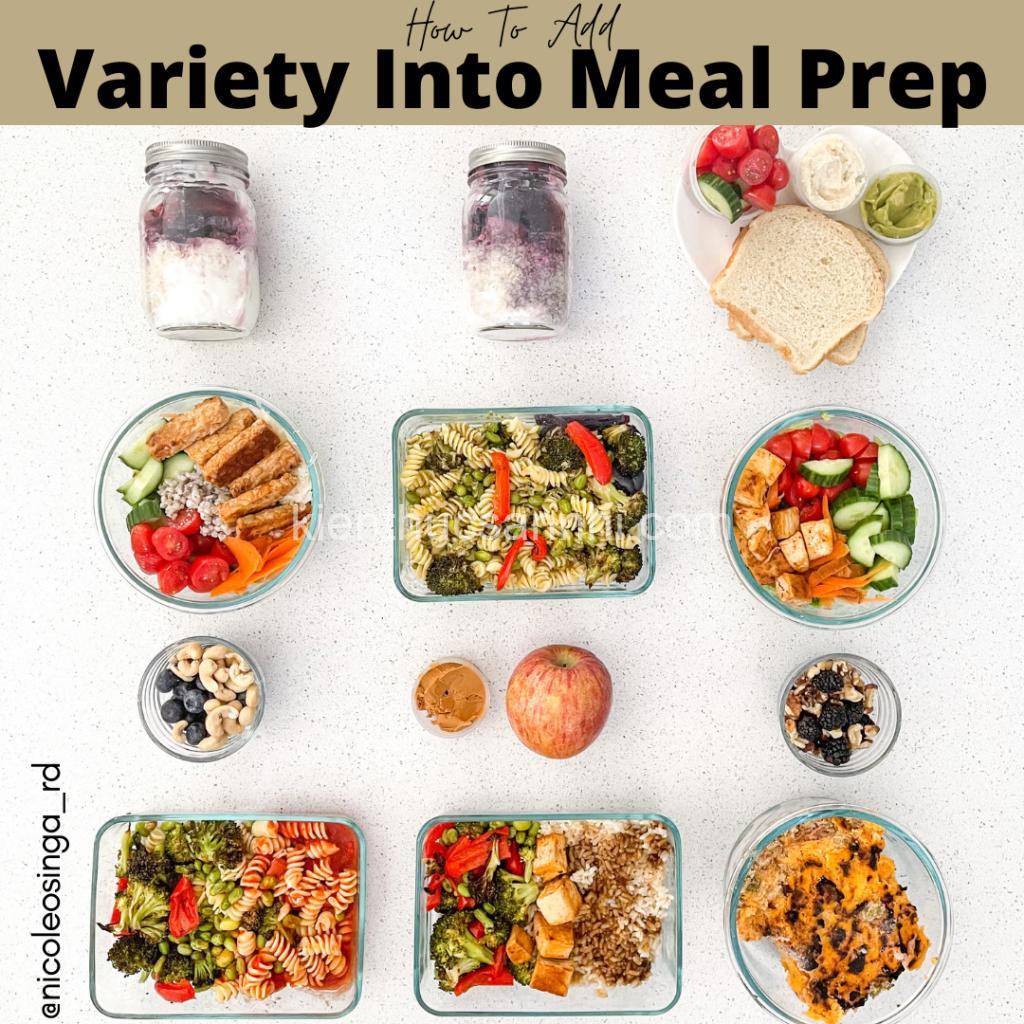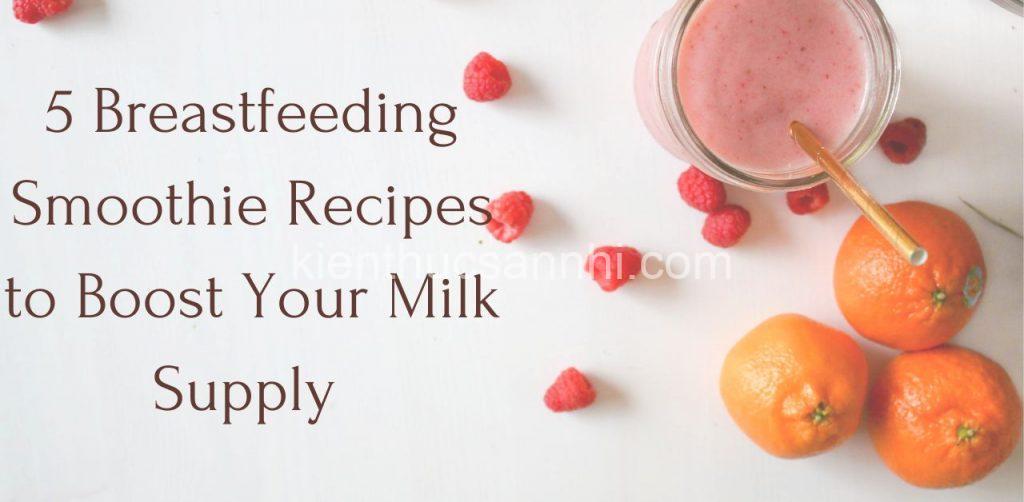
Foods for Postpartum Mood: Boost Your Well-being. In today’s article, kienthucsannhi.com will explore with you in the most detailed and complete way. See now!
Nutrient-Rich Foods for Postpartum Mood Boost
Becoming a new mom is a life-changing experience, filled with joy, love, and, sometimes, overwhelming emotions. Postpartum depression (PPD) is a common condition that affects many women after childbirth. While professional support is essential for managing PPD, making dietary changes can help boost your mood and overall well-being.
Omega-3 Fatty Acids
Omega-3 fatty acids are essential for brain function and mood regulation. These healthy fats help improve communication between brain cells, contributing to a positive mood. They also play a role in reducing inflammation, which can contribute to mood changes.
Foods rich in Omega-3s:
- Fatty fish: Salmon, tuna, mackerel, and sardines are excellent sources of omega-3s. Aim for at least two servings of fatty fish per week.
- Walnuts: These nuts are a great plant-based source of omega-3s. Enjoy a handful of walnuts as a healthy snack or add them to your favorite trail mix.
- Flaxseeds and chia seeds: These tiny seeds are packed with omega-3s, as well as fiber and other beneficial nutrients. Sprinkle them on yogurt, salads, or smoothies, or grind them into a meal for added flavor and nutrition.
B Vitamins
B vitamins are essential for energy production and the synthesis of neurotransmitters, which are chemical messengers that play a crucial role in mood regulation.
Foods rich in B vitamins:
- Leafy green vegetables: Spinach, kale, and collard greens are excellent sources of folate, a B vitamin crucial for brain health.
- Whole grains: Brown rice, quinoa, and oats are good sources of B vitamins.
- Eggs: Eggs are a rich source of B12, another essential vitamin for brain function and energy levels.
- Legumes: Beans, lentils, and chickpeas are good sources of folate and other B vitamins.
Vitamin D
Vitamin D plays a vital role in mood regulation and may help reduce the risk of depression. It also helps your body absorb calcium, which is important for strong bones and overall health.
Foods rich in vitamin D:
- Fatty fish: Salmon, tuna, and mackerel are good sources of vitamin D.
- Eggs: Eggs provide a moderate amount of vitamin D.
- Mushrooms: Some types of mushrooms, like shiitake and oyster mushrooms, are good sources of vitamin D, particularly if they are exposed to sunlight or UV light.
- Fortified dairy products: Milk, yogurt, and cheese are often fortified with vitamin D.
Probiotics and Prebiotics
The gut microbiome plays a significant role in mental health. Probiotics are live bacteria that benefit your gut health, while prebiotics are food for these beneficial bacteria. A healthy gut microbiome is linked to improved mood and reduced symptoms of depression.
Foods rich in probiotics:
- Yogurt: Look for yogurts with live and active cultures.
- Kefir: A fermented milk drink similar to yogurt, but with even more probiotics.
- Sauerkraut and kimchi: These fermented vegetables are good sources of probiotics.
Foods rich in prebiotics:
- Garlic, onions, and leeks: These vegetables contain fructans, a type of prebiotic that feeds beneficial bacteria in your gut.
- Bananas: Bananas are a good source of resistant starch, another prebiotic that helps promote gut health.
- Asparagus: Asparagus contains inulin, a type of prebiotic that can help improve digestive health.
Antioxidants
Antioxidants protect the brain from damage caused by oxidative stress, which can contribute to depression.
Foods rich in antioxidants:
- Berries: Blueberries, strawberries, raspberries, and blackberries are packed with antioxidants.
- Dark chocolate: Choose dark chocolate with a high cacao content (70% or higher) for the most antioxidant benefits.
- Green tea: Green tea is rich in polyphenols, a type of antioxidant that may have mood-boosting effects.
- Nuts and seeds: Nuts and seeds, like almonds, walnuts, and pumpkin seeds, are good sources of antioxidants.

Staying Hydrated and Limiting Processed Foods
Importance of Hydration
Staying hydrated is essential for maintaining overall health and well-being. Dehydration can contribute to fatigue, headaches, and mood changes.
Negative Effects of Processed Foods
Processed foods are often high in sugar, saturated fat, and sodium. These ingredients can lead to inflammation, which can negatively impact mood and contribute to depression.
Lack of Essential Nutrients
Processed foods often lack essential nutrients found in whole foods, which can further contribute to mood swings and exacerbate symptoms of depression.
Beyond Food: Holistic Approach to Postpartum Depression
While dietary changes can play a role in managing postpartum depression, it’s important to remember that they are only part of a holistic approach.
- Professional Support: Seeking help from a doctor or mental health specialist is crucial for addressing postpartum depression. They can provide personalized support, therapy, and medication if needed.
- Therapy and Medication: Therapy can help you develop coping mechanisms for managing stress and emotions. In some cases, medication may be necessary to alleviate symptoms of depression.
- Lifestyle Changes: Making healthy lifestyle changes can significantly contribute to your well-being.
- Regular Exercise: Aim for at least 30 minutes of moderate-intensity exercise most days of the week.
- Adequate Sleep: Prioritize getting enough sleep.
- Stress Management Techniques: Practice relaxation techniques like yoga, meditation, or deep breathing.
- Social Support: Connect with friends, family, or support groups for emotional support.
Additional Considerations
- Dietary Supplements: Some supplements, such as omega-3 fatty acids, vitamin D, and B vitamins, can be beneficial for mental health. However, it’s important to talk to your doctor before taking any supplements, especially during pregnancy and breastfeeding.
- Individual Needs: Nutritional needs can vary based on individual circumstances. It’s important to consult with a healthcare professional for personalized advice.
- Meal Planning Tips:
- Make time for meal prep: Dedicate some time each week to prepare healthy snacks and meals in advance.
- Incorporate nutrient-rich foods: Focus on adding plenty of fruits, vegetables, whole grains, lean protein, and healthy fats to your diet.
- Don’t be afraid to experiment: Try new recipes and explore different cuisines to find foods you enjoy.
- Keep it simple: Don’t feel overwhelmed by trying to make major changes overnight. Start with small steps and gradually incorporate healthier choices.
Are there specific foods that can worsen postpartum depression?
While there is no one-size-fits-all answer, some foods may trigger mood changes or contribute to symptoms of depression. Processed foods, sugary drinks, and foods high in saturated fat are often associated with negative mood effects. It’s important to listen to your body and pay attention to how different foods make you feel.
What are the best supplements for postpartum depression?
There’s no one-size-fits-all answer, but some supplements, like omega-3 fatty acids, vitamin D, and B vitamins, have shown promise in supporting mood regulation and overall well-being. However, it’s important to talk to your doctor before taking any supplements, especially during pregnancy and breastfeeding.
Can eating healthy foods really help with postpartum depression?
A balanced diet can play a significant role in supporting mental and physical health. Nutrient-rich foods provide essential vitamins and minerals that are important for brain function and mood regulation. However, diet alone cannot cure postpartum depression. It’s essential to seek professional help and address any underlying issues.
How can I get more vitamin D?
Besides incorporating vitamin D-rich foods into your diet, getting regular sunlight exposure is important for vitamin D synthesis. Aim for at least 15 minutes of sunshine each day.
Can I take a probiotic supplement?
Taking a probiotic supplement may be beneficial for gut health, but it’s important to talk to your doctor before starting any new supplement regimen.
Conclusion
Taking care of your mental and physical health after childbirth is essential. A healthy diet, combined with professional support, therapy, and lifestyle changes, can play a crucial role in managing postpartum depression. Keep exploring our website, kienthucsannhi.com, for more information on animal care, pet products, and well-being. We encourage you to share your experiences in the comments section below and connect with other new mothers. We are here to support you on this journey!
Michael David Smith is a passionate animal lover and owner of kienthucsannhi.com. He is dedicated to providing accurate, up-to-date, and reliable information about animal care and well-being.





